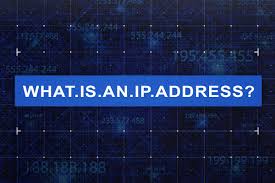In the interconnected world of today, having a solid understanding of IP addresses and the benefits of owning one can greatly impact your online activities and network management. Whether you’re managing a business network, running a website, or simply exploring network configurations, owning an IP address can be a strategic advantage. In this blog, we will explore what it means to own an ip address, why you might want one, and how to manage it effectively.
What is an IP Address?
An IP (Internet Protocol) address is a numerical label assigned to each device connected to a computer network that uses the Internet Protocol for communication. It serves two main purposes:
- Identification: It identifies the device on the network.
- Location Addressing: It helps route data to the correct destination.
There are two versions of IP addresses:
- IPv4: The most common format, such as 192.168.1.1.
- IPv6: A newer format designed to address the limitations of IPv4, such as 2001:0db8:85a3:0000:0000:8a2e:0370:7334.
Why Own an IP Address?
- Static vs. Dynamic IP Addresses:
- Static IP Address: A static IP address does not change. It is manually configured and remains the same over time, which is essential for tasks that require a fixed address, such as hosting a website or running a remote server.
- Dynamic IP Address: Assigned by a DHCP (Dynamic Host Configuration Protocol) server, dynamic IPs can change periodically. While they are often sufficient for everyday internet usage, they may not be ideal for applications that need constant access.
- Benefits of Owning a Static IP:
- Reliability: A static IP ensures that your device’s address remains consistent, making it easier to establish a reliable connection for services like web hosting, email servers, or VPNs.
- Remote Access: For businesses or tech enthusiasts, having a static IP makes it simpler to remotely access systems and servers without the complications of changing addresses.
- Improved Security: Static IP addresses can be used to set up more robust security measures, including firewall rules and access controls, which can be crucial for protecting sensitive data.
- Performance and Troubleshooting:
- Enhanced Performance: Consistency in IP addresses can lead to improved performance for certain applications, particularly those that require low latency and stable connections.
- Simplified Troubleshooting: With a static IP, tracking and resolving network issues can be more straightforward since the address remains constant.
How to Obtain and Manage an IP Address
- Requesting a Static IP from Your ISP:
To obtain a static IP address, you’ll typically need to request it from your Internet Service Provider (ISP). Many ISPs offer static IP addresses as part of their business packages or for an additional fee. Make sure to discuss your needs and the associated costs with them. - Configuring Your IP Address:
- For Personal Use: If you’re managing a home network and need a static IP for a specific device (like a printer or server), you can often configure this through your router’s settings.
- For Businesses: Larger networks might require a more sophisticated approach, including setting up internal DHCP servers and IP address management (IPAM) tools to handle a range of IP addresses efficiently.
- Public vs. Private IP Addresses:
- Public IP Address: This is assigned by your ISP and is used for external communication on the internet.
- Private IP Address: Used within your local network, these addresses are not visible on the internet and are managed internally by your router or network administrator.
Conclusion
Owning an IP address, especially a static one, can provide significant advantages in terms of stability, control, and security for your online activities and network management. Whether you’re hosting a website, running a business network, or simply seeking more reliable internet access, understanding how to acquire and manage an IP address is a crucial step in optimizing your digital presence.
By leveraging the benefits of owning a static IP address, you can enhance your network performance, streamline remote access, and implement more effective security measures. Take the time to evaluate your needs and consult with your ISP or network administrator to make the most out of your IP address ownership.


Leave a Reply